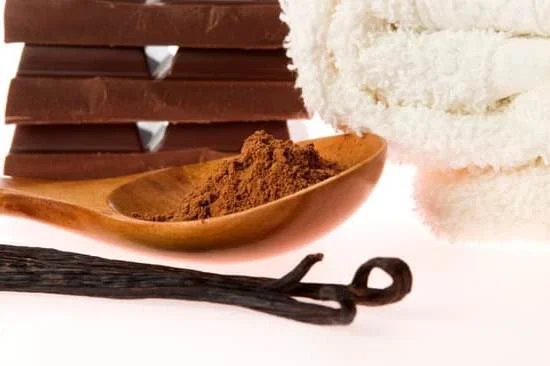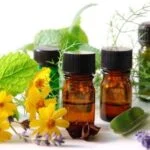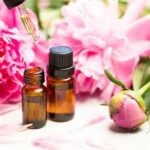Aromatherapy, a practice that utilizes essential oils to improve physical and emotional well-being, has gained popularity in recent years for its potential benefits across various health conditions. One area where aromatherapy shows promise is in the treatment of depression. This article aims to explore the concept of aromatherapy as a natural and alternative approach to managing depression symptoms.
Depression is a complex mental health condition that affects millions of people worldwide. It is characterized by persistent feelings of sadness, loss of interest or pleasure, changes in appetite and sleep patterns, and difficulty in concentrating or making decisions. While traditional treatments such as therapy and medication are widely used, many individuals seek complementary methods like aromatherapy to alleviate their symptoms.
Aromatherapy involves the use of concentrated plant extracts called essential oils, which are believed to stimulate certain responses in the brain when inhaled or applied topically on the skin. These oils have been used for centuries for their potential therapeutic effects on mood and emotions.
They may help by promoting relaxation, reducing anxiety, improving sleep quality, and providing an overall sense of well-being. In the context of depression management, essential oils used in aromatherapy offer a non-invasive and potentially effective way to support emotional healing and enhance mental well-being.
By delving deeper into the science behind aromatherapy, this article will explore how certain scents can impact the brain’s chemistry. It will also discuss scientific studies that provide evidence supporting the use of aromatherapy as a complementary treatment for depression. Additionally, readers will discover popular essential oils traditionally recommended for alleviating depressive symptoms such as lavender, bergamot, and chamomile.
The rest of this article will delve into step-by-step instructions on how to incorporate aromatherapy into daily routines to help manage depression symptoms effectively. It will also examine potential benefits individuals with depression may experience from using aromatherapy while acknowledging any limitations or side effects to be aware of. Moreover, real-life success stories from individuals who have found relief through aromatherapy will be shared, along with professional advice and precautions for safe practice.
Understanding Depression
What is Depression?
Depression is a mental health disorder characterized by persistent feelings of sadness, hopelessness, and a loss of interest in activities. It affects how a person thinks, feels, and behaves, leading to the inability to function normally in daily life. Depression is different from simply feeling down or having a “bad day.” It is a serious medical condition that requires proper diagnosis and treatment.
Symptoms of Depression
Depression can manifest in various ways, but some common symptoms include:
- Persistent sadness or an empty mood Loss of interest or pleasure in most activities Weight loss or gain, changes in appetite Insomnia or hypersomnia (excessive sleep)
- Fatigue and loss of energy Feelings of worthlessness or excessive guilt Difficulty concentrating or making decisions Restlessness or slowed movements Recurrent thoughts of death or suicide It’s important to note that everyone experiences depression differently, and not all symptoms may be present for each individual.
Causes and Prevalence
The causes of depression are complex and can vary from person to person. While it is not entirely understood why some people develop depression while others do not, there are several factors that may contribute to its onset:
- Biological factors: Imbalances in brain chemicals (neurotransmitters) like serotonin can play a role in the development of depression.
- Genetics: Having a family history of depression increases the risk.
- Environmental factors: Traumatic events such as abuse, loss of loved ones, or financial difficulties can trigger depressive episodes.
- Medical conditions: Certain chronic illnesses like cancer, diabetes, or heart disease have been linked to an increased risk of depression.
Depression affects millions worldwide, regardless of age, gender, or socioeconomic status. According to the World Health Organization (WHO), it is estimated that over 300 million people suffer from depression globally, making it one of the leading causes of disability worldwide. Understanding the complexity and prevalence of depression is crucial in exploring alternative and complementary treatments like aromatherapy as a potential support for individuals with this condition.
Exploring Aromatherapy
Aromatherapy has gained popularity as a natural and alternative approach to treating various health conditions, including depression. This section explores the concept of aromatherapy and its potential benefits for individuals experiencing depression. Additionally, it highlights the use of essential oils and their potential effects on the mind and body.
Understanding Aromatherapy
Aromatherapy is a holistic healing practice that utilizes essential oils extracted from plants to improve physical, emotional, and mental well-being. These essential oils are highly concentrated plant extracts that capture the aromatic compounds found in flowers, leaves, bark, and other parts of plants. They are believed to have therapeutic properties that can positively influence mood and overall health.
The Potential Benefits of Aromatherapy for Depression
When it comes to depression, aromatherapy is considered an adjunctive or complementary therapy rather than a standalone treatment. It is not intended to replace conventional treatments such as medication or psychotherapy but can be used in conjunction with them.
One potential benefit of aromatherapy for depression is its ability to promote relaxation and reduce anxiety. Certain scents have been shown to activate brain areas associated with calming emotions and relieving stress. These scents can help individuals experiencing depression to find relief from their symptoms by creating a more relaxed state of mind.
Another way aromatherapy may be helpful is by improving sleep quality. Sleep disturbances are common among individuals with depression, so incorporating essential oils known for their sedative properties into one’s bedtime routine might promote better sleep patterns. By improving sleep quality, aromatherapy can indirectly contribute to overall well-being and symptom management in those with depression.
The Science Behind Aromatherapy
Aromatherapy has been used for centuries as a natural remedy for various health conditions, including depression. While the concept of using scents to improve well-being may seem abstract, there is scientific evidence to support the idea that aromatherapy can be beneficial for those experiencing depressive symptoms.
Numerous studies have explored the connection between aromatherapy and its effects on the brain and emotions. One study published in the journal ‘Phytomedicine’ found that inhaling bergamot essential oil led to significant reductions in anxiety and stress levels in participants. Another study published in ‘Complementary Therapies in Clinical Practice’ showed that inhaling lavender essential oil reduced depressive symptoms and improved sleep quality in individuals with postpartum depression.
These findings can be attributed to how certain scents impact the brain. When we inhale essential oils, their molecules travel through our olfactory system and stimulate the limbic system, which is responsible for regulating emotions and memory. This interaction triggers the release of neurotransmitters like serotonin and endorphins, which are known to elevate mood and reduce feelings of sadness or anxiety.
While more research is needed to fully understand the mechanisms behind aromatherapy’s effects on depression, these studies provide promising evidence that incorporating specific scents into one’s daily routine can have a positive impact on mental well-being. However, it’s important to note that aromatherapy should not replace other forms of treatment for depression. It should be used as a complementary approach alongside therapy, medication, or other recommended treatments.
| Study | Findings |
|---|---|
| ‘Phytomedicine’ study | Bergamot essential oil inhalation reduces anxiety and stress levels. |
| ‘Complementary Therapies in Clinical Practice’ study | Lavender essential oil inhalation reduces depressive symptoms and improves sleep quality. |
As research continues to explore the science behind aromatherapy, it is becoming increasingly clear that certain scents can have a significant impact on the brain and emotions. This knowledge provides a basis for understanding how aromatherapy can be an effective supplementary treatment for depression.
Popular Essential Oils for Depression
Aromatherapy relies on the use of essential oils to promote physical and emotional well-being. When it comes to managing depression symptoms, certain essential oils have been traditionally used for their potential mood-lifting effects. These oils are believed to have properties that can help reduce stress, anxiety, and promote relaxation. Here are some popular essential oils for depression:
- Lavender: Lavender oil is known for its calming and soothing properties. It has been used in aromatherapy to help relieve symptoms of anxiety and depression by promoting relaxation and improving sleep quality.
- Bergamot: Bergamot oil is derived from the peel of the bergamot fruit and is often used in aromatherapy as an uplifting scent. It is believed to have mood-enhancing properties that can help alleviate symptoms of depression.
- Chamomile: Chamomile oil is well-known for its calming effects on the mind and body. It has been traditionally used in aromatherapy to promote relaxation, reduce stress, and improve sleep quality.
- Ylang Ylang: Ylang ylang oil is derived from the flowers of the Cananga odorata tree and has a sweet floral scent. It is commonly used in aromatherapy to promote relaxation, reduce anxiety, and uplift mood.
- 5.Rose: Rose oil has a sweet floral scent that is often associated with feelings of love and comfort. It has been used in aromatherapy as a mood enhancer, helping to alleviate symptoms of depression by promoting positive emotions.
It’s important to note that essential oils should be used with caution, as they can be potent and may interact with medications or trigger allergies in some individuals. Before using any essential oils for depression or any other health condition, it is advisable to consult with a healthcare professional or aromatherapy expert to ensure safe and appropriate use.
When using essential oils for depression, it is recommended to dilute them with a carrier oil, such as coconut oil or jojoba oil, before applying them to the skin. They can also be used in diffusers, added to bathwater, or inhaled through steam inhalation. Individuals should experiment with different essential oils and methods of use to find what works best for them and their specific symptoms.
How to Use Aromatherapy for Depression
Incorporating aromatherapy into a daily routine can be a simple and effective way to help alleviate symptoms of depression. There are various methods of using essential oils, each offering unique benefits. Here is a step-by-step guide on how to incorporate aromatherapy into your daily routine:
1. Inhalation Methods: Inhalation is one of the most common ways to use essential oils for depression. It involves direct inhalation of the aroma through the nose or mouth. There are several methods of inhalation, including:
– Direct inhalation: Place a few drops of essential oil onto a tissue or cotton ball and inhale deeply.
– Aromatherapy diffusers: Use an electronic diffuser or reed diffuser to disperse the scent throughout a room.
– Aromatherapy jewelry: Wear jewelry designed for aromatherapy, such as necklaces or bracelets with built-in scent pads, which allow you to enjoy the fragrance all day.
2. Aromatherapy massages: Massaging essential oils into the skin can promote relaxation and enhance mood. For an aromatherapy massage, dilute 5-10 drops of your chosen essential oil in 1 tablespoon of carrier oil, such as almond or coconut oil. Gently massage the oil onto your body, focusing on areas like the temples, neck, wrists, and soles of the feet.
3. Bath rituals: Taking a relaxing bath infused with essential oils can be incredibly calming for both the mind and body. Add 5-10 drops of your preferred essential oil to warm bathwater and agitate the water gently to disperse the oil evenly before stepping in. Soak for at least 15 minutes to fully enjoy the benefits.
It’s important to note that everyone responds differently to essential oils, so it’s crucial to find the method that works best for you. Experiment with different inhalation techniques, massages, and bath rituals until you find a routine that brings you comfort and relaxation. Remember to always use high-quality, pure essential oils, as adulterated or synthetic oils may not have the same therapeutic properties.
By incorporating aromatherapy into your daily routine, you can create a soothing and uplifting environment that may help alleviate symptoms of depression. However, it’s important to consult with a healthcare professional before starting any new treatment regimen, especially if you’re currently taking medication for depression. They can provide guidance on suitable essential oils and ensure there are no contraindications with your current mental health plan.
Potential Benefits and Limitations
Aromatherapy has gained attention as a potential natural remedy for various health conditions, including depression. Individuals with depression may experience several benefits from incorporating aromatherapy into their treatment plan. Aromatherapy has been found to improve mood, reduce anxiety, and promote better sleep. However, it is important to acknowledge the limitations and potential side effects that may arise.
One of the potential benefits of aromatherapy for individuals with depression is an improved mood. Research suggests that certain scents can stimulate the brain and trigger the release of chemicals that are responsible for regulating emotions. Essential oils like lavender and bergamot have been traditionally used to uplift mood and promote feelings of relaxation.
In addition to improving mood, aromatherapy may also help reduce anxiety in individuals with depression. Aromatherapy has been found to have a calming effect on the mind and body, which can help alleviate symptoms of anxiety commonly associated with depression. Essential oils like chamomile and ylang-ylang are known for their soothing properties and can be used in aromatherapy to promote relaxation and ease anxiety.
Another potential benefit of aromatherapy for individuals with depression is better sleep quality. Insomnia and disrupted sleep patterns are common symptoms experienced by people with depression. Certain essential oils such as lavender, clary sage, or sandalwood have sedative properties that can aid in promoting relaxation and inducing sleep.
While aromatherapy can offer these potential benefits, it is important to consider any limitations or potential side effects that may occur. Some individuals may be sensitive or allergic to certain essential oils, causing skin irritation or respiratory problems when using them topically or inhaling them. It is crucial to perform a patch test before using any new essential oil product.
Moreover, aromatherapy should not replace conventional treatments for depression such as therapy or medication but rather be used as a complementary approach alongside them. The effectiveness of aromatherapy may vary from person to person, and it is essential for individuals with depression to consult with a healthcare professional before incorporating aromatherapy into their treatment plan.
Success Stories
Aromatherapy has gained popularity as a natural and alternative approach to managing depression. Many individuals have reported success in alleviating their depressive symptoms through the use of essential oils and other aromatherapy techniques. These success stories serve as powerful testimonials for the potential effectiveness of aromatherapy in treating depression.
One success story comes from Sarah, who had been struggling with chronic depression for several years. She decided to give aromatherapy a try after hearing about its potential benefits. Sarah started using lavender essential oil in her daily routine, incorporating it into her bath and diffusing it in her bedroom.
After just a few weeks, she noticed a significant improvement in her mood and overall well-being. Sarah found that the soothing scent of lavender helped calm her mind, reduce anxiety, and promote better sleep. She shared that aromatherapy became an essential part of her self-care routine, providing her with much-needed relief from her depressive symptoms.
Another individual, Michael, discovered the power of bergamot essential oil in managing his depression. After experiencing a particularly difficult episode of depression, he sought out alternative treatments and stumbled upon aromatherapy. Michael began diffusing bergamot oil in his work environment and noticed a remarkable shift in his mood and focus. He stated that the fresh and uplifting scent of bergamot lifted his spirits, increased his energy levels, and allowed him to better cope with his depressive thoughts.
These success stories are not isolated incidents but representative of many individuals who have found relief through aromatherapy for their depression symptoms. While everyone’s experience may vary, these testimonials provide hope for others seeking alternative ways to manage their mental health.
It is important to note that while these success stories are encouraging, they should not replace professional guidance or treatment for depression. Aromatherapy should be used as a supplementary treatment alongside traditional therapies under the supervision of healthcare professionals. Individuals considering incorporating aromatherapy into their depression management plan are advised to consult with aromatherapy experts or professionals. They can provide personalized guidance, precautions, and contraindications based on an individual’s specific needs and health condition.
Professional Advice and Precautions
Professional Advice and Precautions:
When considering aromatherapy as a supplementary treatment for depression, it is important to seek professional advice from aromatherapy experts or professionals. These individuals are trained in the safe and effective use of essential oils and can provide valuable tips, precautions, and contraindications to ensure a positive experience with aromatherapy.
One important piece of advice when using aromatherapy for depression is to dilute essential oils properly before applying them directly to the skin. Essential oils are highly concentrated substances and can cause skin irritation or allergic reactions if used undiluted. Aromatherapy experts can guide individuals in selecting the appropriate carrier oil for dilution, such as almond oil or jojoba oil.
In addition, it is crucial to consider any existing medical conditions or medications that may interact with essential oils. Some essential oils may have contraindications for certain individuals, such as pregnant women, children, or those with specific health conditions like asthma or epilepsy. Seeking guidance from a professional ensures that any potential risks or interactions are identified and avoided.
Furthermore, professionals can provide insights on the proper dosage and frequency of use when incorporating aromatherapy into a depression management plan. It is essential to follow recommended guidelines to prevent overexposure to certain scents, which may lead to adverse effects. Professionals can also advise on the best methods of application based on individual preferences and needs.
Overall, consulting with aromatherapy experts or professionals before using aromatherapy for depression helps ensure that individuals receive personalized guidance and support in their journey towards well-being. By prioritizing safety measures and following professional advice, individuals can optimize their experience with aromatherapy and maximize its potential benefits as a supplementary treatment for depression.
Conclusion
In conclusion, the concept of aromatherapy has been explored in this article as a potential complementary treatment option for depression. Aromatherapy utilizes essential oils to potentially improve mood, reduce anxiety, and promote better sleep. Scientific research supports the idea that certain scents can impact the brain and emotions, making aromatherapy an appealing natural alternative for individuals with depression.
Throughout this blog, we have discussed the science behind aromatherapy and its potential benefits. Specific essential oils such as lavender, bergamot, and chamomile have been traditionally used to alleviate depressive symptoms. We have also provided a step-by-step guide on how to incorporate aromatherapy into a daily routine through inhalation methods, diffusers, massages, and bath rituals.
While aromatherapy shows promise in helping with depression, it is important to consult with a healthcare professional before incorporating it into your depression management plan. Each individual may respond differently to aromatherapy, and there may be contraindications or potential side effects that need to be considered. Seeking professional advice can ensure that you are using essential oils safely and effectively.
Overall, aromatherapy can be an effective and natural complementary treatment option for depression. Its potential benefits in improving mood and overall well-being make it worth exploring for those seeking natural remedies. Remember to work closely with your healthcare professional to determine the best course of action for managing your depression symptoms effectively.
Frequently Asked Questions
Does aromatherapy improve mood?
Aromatherapy has shown promise in improving mood for many individuals. Certain essential oils have been found to have mood-enhancing properties, such as lavender, bergamot, and chamomile. These oils are believed to stimulate the release of neurotransmitters like serotonin and dopamine, which are associated with feelings of relaxation and well-being.
When used in aromatherapy, these oils can be inhaled or applied topically in diluted form. Studies have indicated that the inhalation of essential oils can positively impact mood by reducing anxiety levels and promoting a sense of calmness. While aromatherapy alone may not be a cure for severe or clinical depression, it can be a valuable complementary practice to help uplift mood.
What essential oil is good for stress and depression?
Among the various essential oils known for their stress-reducing and mood-boosting effects, one that stands out is lavender oil. Lavender has been extensively studied and is widely recognized for its calming properties.
Research suggests that inhaling lavender oil can help reduce anxiety levels and improve sleep quality, making it an effective option for managing stress-induced symptoms of depression as well. Its soothing aroma is thought to have a sedative effect on the nervous system, helping to promote relaxation and alleviate tension associated with stress and mild depressive symptoms.
What are the three strategies for coping with mild depression?
When coping with mild depression, there are several strategies that can be helpful in managing symptoms:

Are you looking for a natural way to improve your health and wellbeing?
If so, aromatherapy may be the answer for you.





